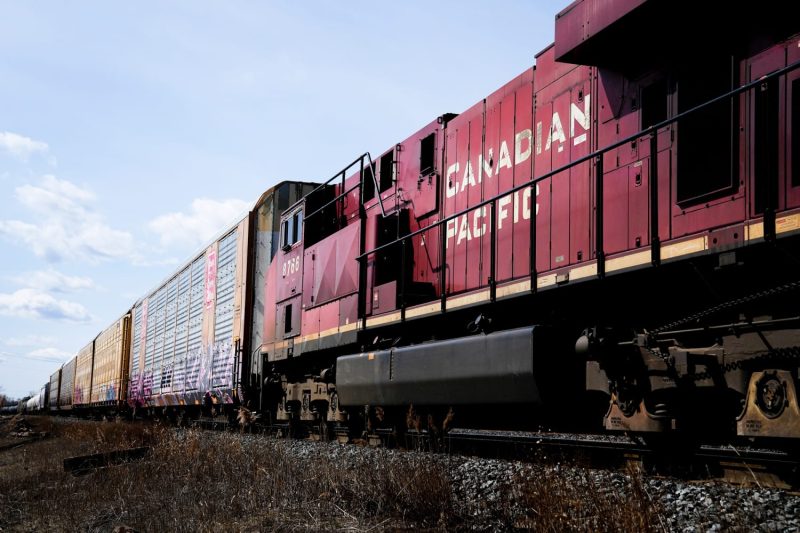The possible work stoppage at Canada’s two largest railroads, Canadian National Railway (CN) and Canadian Pacific Railway (CP), has sparked concerns regarding potential disruptions to the U.S. supply chain. This development has raised alarms among industry experts and stakeholders who rely heavily on the seamless transportation of goods between Canada and the United States.
The impact of a work stoppage at CN and CP could be far-reaching, affecting various industries that depend on the efficient movement of commodities such as automotive, agriculture, energy, and manufacturing. Rail transportation plays a critical role in connecting businesses across North America, facilitating the timely delivery of raw materials, finished products, and goods to markets.
One of the key concerns surrounding a potential work stoppage is the disruption it could cause to just-in-time inventory systems. Many businesses operate on tight schedules and rely on rail transportation to receive essential supplies and components precisely when needed. A halt in rail operations could lead to delays, production bottlenecks, and increased costs for businesses that are ill-prepared to handle such disruptions.
Moreover, the interconnected nature of the U.S. and Canadian economies means that any disturbance in transportation networks can have a ripple effect on both countries. The U.S. relies on Canada as one of its largest trading partners, with goods flowing seamlessly across the border via rail. Any slowdown in rail operations in Canada could impact the supply of goods to U.S. industries, leading to potential shortages and price increases.
The potential work stoppage at CN and CP also highlights the importance of maintaining robust transportation infrastructure and ensuring the continuity of essential services. Railways are a lifeline for many businesses, enabling them to reach domestic and international markets efficiently. Disruptions in rail services can not only affect businesses but also have repercussions on employment, economic growth, and consumer prices.
In response to the threat of a work stoppage, stakeholders on both sides of the border are closely monitoring the situation and assessing contingency plans. Business associations, government agencies, and industry groups are working collaboratively to mitigate the impact of any potential disruptions and find alternative transportation solutions if needed.
Ultimately, the possible work stoppage at Canada’s two largest railroads serves as a stark reminder of the importance of a reliable and resilient transportation network for the smooth functioning of global supply chains. As businesses navigate the challenges posed by uncertainties in the transportation sector, proactive planning, close coordination, and agile responses will be crucial in safeguarding the flow of goods and maintaining the integrity of the U.S. supply chain.
